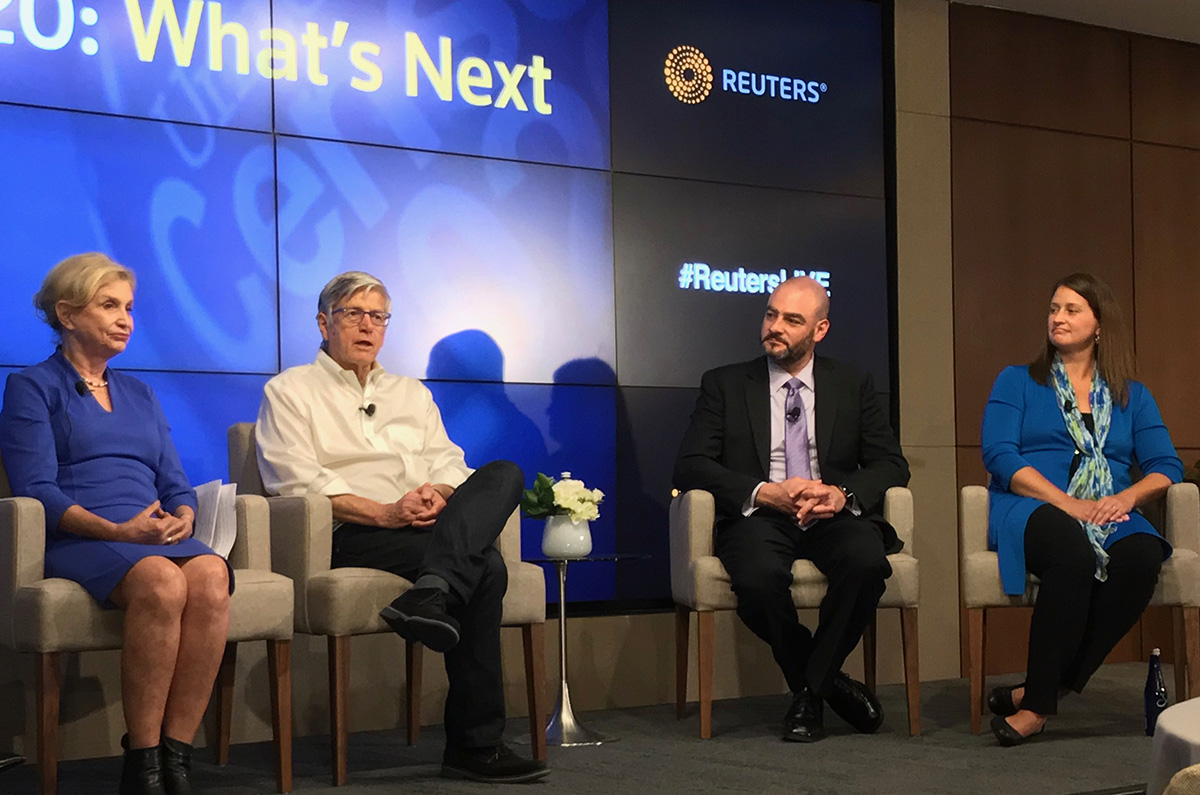This article originally appeared on Nielsen.com.

The U.S. Census has been instrumental in the success and accuracy of measurement for Nielsen and other businesses throughout America. With the potential introduction of a citizenship question on the upcoming 2020 Census, lawmakers, businesses, and activists alike have rallied to oppose it, resulting in the Supreme Court rejecting the rationale for the question’s inclusion.
For Nielsen, being a vocal leader on the issue has been a top priority, as the Census is one of several data sources we use to accurately calibrate our panels and processes. Nielsen believes the inclusion of a citizenship question could lead to inaccuracies in the underlying data—inaccuracies that could have a significant impact on businesses who rely on the data to make material decisions each day.
Nielsen’s Christine Pierce, SVP Data Science, was on stage in New York City at a Reuters Newsmaker event to talk about the importance of accuracy and integrity for the upcoming U.S. Census in 2020. Sharing the spotlight with notables Congresswoman Carolyn B. Maloney (New York’s 12th Congressional District), former DOJ Civil Rights appointee Justin Levitt, and former Census Director Kenneth Prewitt, Pierce detailed to a packed room why Nielsen took such a strong stance against adding a citizenship question, how private sector companies like Nielsen rely on a census as a foundation to a truth set, and the scientific risk in not having a robust census turnout.
In regard to Nielsen’s stance on a potential citizenship question on the upcoming Census, Pierce noted a core scientific principle of pre-testing the questions statistical veracity “The fact that it wasn’t tested and the fact that it’s a sensitive…and not a necessary question…[is] why we took a stand [against it]. It’s not the right question to be asking on the Census.“
Congresswoman Maloney lauded Nielsen for being one of the few companies to take a public position on this matter in a big way. “I do want to publicly thank Nielsen for speaking out on the Census,” said Congresswoman Maloney. “The business community which had always had a very active role in the Census..they were very big, big supporters of it because they use the data…was quiet. No one was speaking out… No one was speaking out and then Nielsen came out and spoke out…it really meant a lot and I think had a very important impact.”
Pierce further stressed the importance of an accurate Census from Nielsen’s perspective as well, as inaccuracies in Census data could adversely affect the way businesses use the data and significantly affect those who rely on it to make material decisions each day.
“It’s such an integral part of our business…advertisers, large corporations, networks, publishers, and radio stations are all coming to Nielsen to ask ‘How many eyeballs saw this ad, how many people heard this radio program’ and all of that is benchmarked to the Census,” she said. “Everyday we’re using some aspect of the Census—if it’s off, it’s off for a decade.”
Pierce and Congresswoman Maloney shared similar sentiments regarding the potential fallout from an inaccurate Census as the result of a citizenship question being asked. “If your data is not correct, then your policy isn’t correct…your planning isn’t accurate,” Maloney stated. “If you’re not counted, you’re not represented.”




